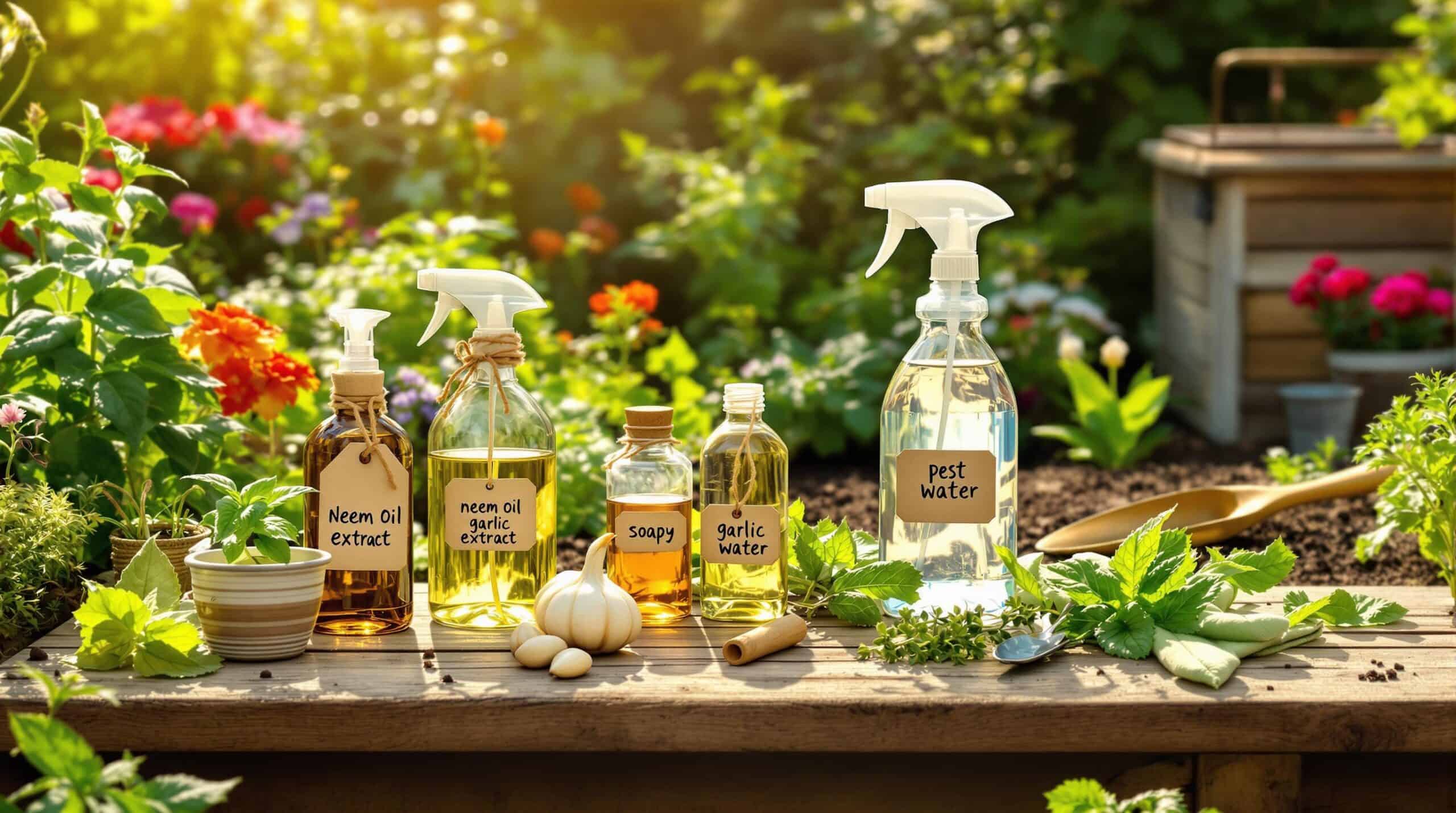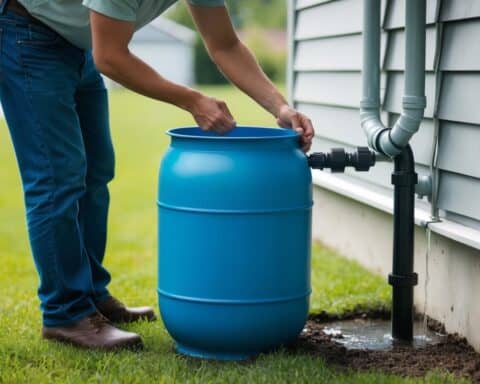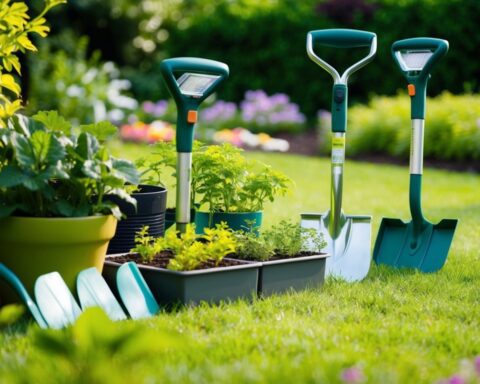Gardening is more than just growing plants; it’s about creating a balanced, thriving ecosystem. But maintaining that balance can be tricky when garden pests wreak havoc on your hard work. While chemical pesticides may seem like a quick fix, they often do more harm than good, damaging soil health and harming beneficial insects. Thankfully, there’s a better way. Natural pest control methods protect your garden and the environment while keeping your plants healthy and flourishing.
This blog will take you through simple, effective techniques to manage garden pests without chemicals. From identifying common culprits to creating a pest-resistant garden environment, you’ll gain everything you need for a chemical-free, thriving garden.
Why Choose Natural Pest Control?
Many gardeners are now ditching harmful chemical pesticides for greener alternatives. But why make the switch? Here’s why natural pest control matters:
- Protects beneficial insects like bees, ladybugs, and butterflies, crucial for pollination and pest regulation.
- Improves soil health by avoiding toxic chemicals that disrupt the delicate balance of microorganisms.
- Safer for children and pets, reducing the risk of exposure to harmful substances.
- Eco-friendly by reducing chemical runoff that contaminates waterways.
- Saves money, as many natural solutions use items already found in your home or garden.
By focusing on natural pest control, you’re supporting a stronger, healthier garden and contributing to a more sustainable planet.
Identifying Common Garden Pests
The first step in effective garden control is understanding your enemy. Here are some of the most common pests and the damage they cause:
1. Aphids
Aphids are tiny, pear-shaped insects that cluster on the undersides of leaves. They suck sap from plants, causing yellowing, distorted growth, and wilting.
2. Caterpillars
Though they turn into beautiful butterflies or moths, caterpillars can feast on leaves, leaving behind ragged holes.
3. Whiteflies
Small, white, winged insects that swarm when disturbed. Whiteflies feed on sap, weakening plants and causing sticky honeydew that attracts mold.
4. Slugs and Snails
Tell-tale slime trails often accompany these nocturnal pests. They chew large, irregular holes in leaves, particularly on tender plants like lettuce and hostas.
5. Spider Mites
These tiny pests are almost invisible but leave a clear trail of damage, including stippling and yellowing leaves. Severe infestations can lead to webbing.
Once you identify the pests in your garden, you can implement targeted, natural solutions to keep them under control.
Natural Predators and Beneficial Insects
One of the most effective strategies for natural pest control is letting nature fight your battles. Many beneficial insects and animals prey on common garden pests, reducing their numbers significantly.
Beneficial Predators to Attract:
- Ladybugs eat aphids, whiteflies, and other soft-bodied pests.
- Lacewings attack aphids, caterpillars, and mealybugs.
- Praying mantises target various pests, including beetles and caterpillars.
- Ground beetles feed on slugs, snails, and soil-dwelling larvae.
- Birds consume caterpillars and other garden pests.
To attract these garden heroes:
- Plant diverse flowers to provide nectar and pollen.
- Avoid using broad-spectrum pesticides.
- Provide habitats such as stones, logs, or dense foliage.
Homemade Pest Control Solutions
Many items you already have at home can double as effective, chemical-free pest control remedies. Here are a few simple concoctions to try:
1. Soap and Water Spray
Mix one tablespoon of mild dish soap with one quart of water and spray directly on pests like aphids and spider mites. The soap coats and suffocates them.
2. Garlic and Chili Spray
Blend one garlic bulb, one chili pepper, and two cups of water. Strain the mixture and spray it on plants to deter pests with its strong smell.
3. Neem Oil
Neem oil, derived from the neem tree, works as both a pesticide and a fungicide. Dilute two teaspoons of neem oil in one quart of water and spray on affected plants.
4. Beer Traps for Slugs
Place shallow bowls of beer in your garden to attract and trap slugs. They’re drawn to the yeast and drown in the solution.
5. Coffee Grounds
Spread coffee grounds around plants to repel slugs and snails. The smell discourages them from approaching.
These solutions are eco-friendly, budget-friendly, and highly effective when used consistently.
Creating a Pest-Resistant Garden Environment
The ultimate goal of natural pest control is to create an environment where pests are less likely to thrive in the first place. Here’s how you can build a pest-resistant garden:
1. Crop Rotation
Avoid planting the same crops in the same spots year after year. Rotation confuses pests and prevents soil depletion.
2. Companion Planting
Pair plants that benefit each other. For example:
- Marigolds repel nematodes and aphids.
- Garlic deters whiteflies and spider mites.
- Nasturtiums attract aphids away from vegetables.
3. Healthy Soil
Healthy soil produces healthy plants that can naturally resist pests. Add organic compost or mulch to enrich your soil and retain moisture.
4. Remove Dead Plants
Clean up dead leaves and plants promptly. They can harbor pests and diseases, creating a breeding ground for future outbreaks.
5. Use Physical Barriers
Cover crops with row covers, fine mesh, or netting to protect them from pests without impacting sunlight or water availability.
Cultivating a Thriving, Chemical-Free Garden
Natural pest control is not just a gardening technique – it’s a lifestyle choice for the eco-conscious gardener. By working with nature instead of against it, you can enjoy a productive, healthy garden that contributes to the well-being of our planet.
Start with small changes, like attracting beneficial insects or trying a homemade spray. Over time, these efforts will transform your garden into a haven that’s pest-resistant and chemical-free.
If you’re ready to take your pest control to the next level, share your tips in the comments or share this article with fellow green-thumbed friends. Together, we can empower more people to cultivate healthy, sustainable gardens one plant at a time.
Happy gardening!







